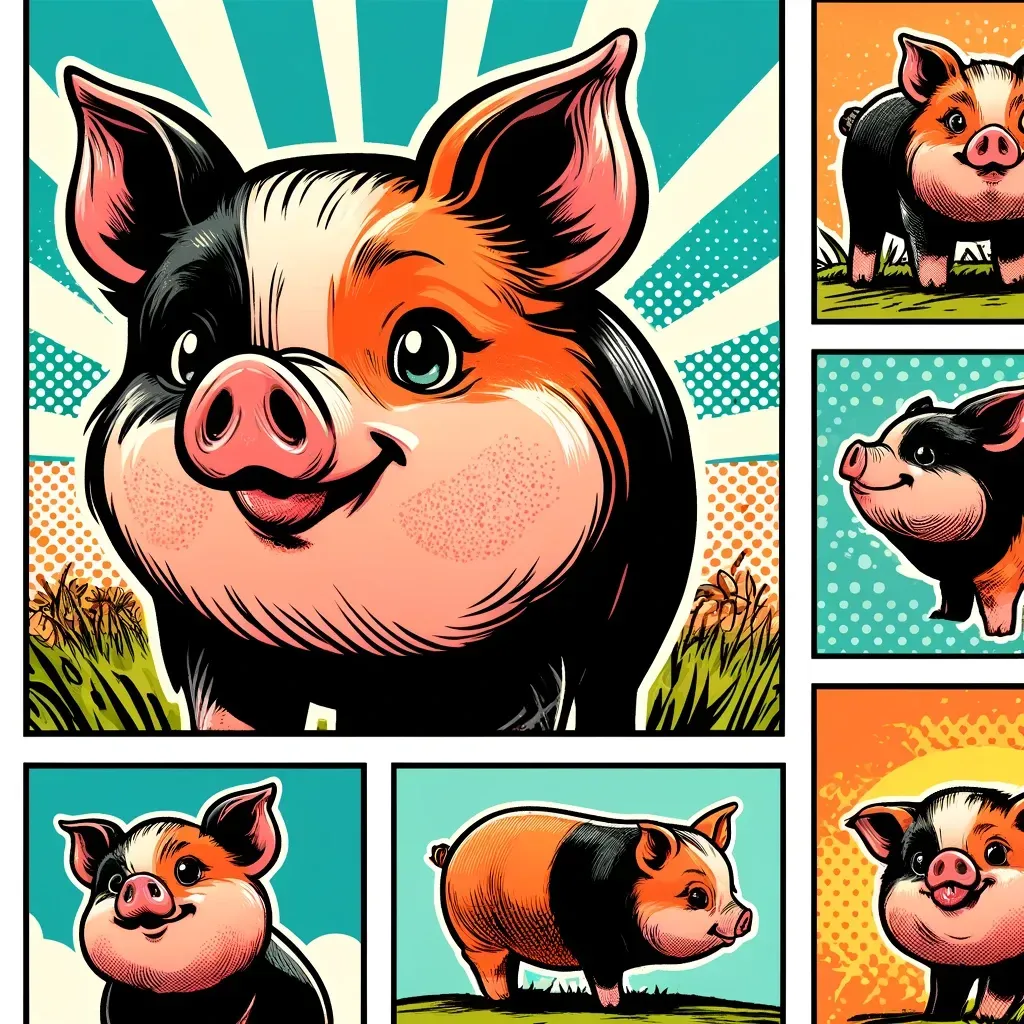
Comprehensive Guide to Raising KuneKune Pigs on the Homestead
Comprehensive Guide to Raising KuneKune Pigs on the Homestead
Introduction
KuneKune pigs, known for their friendly disposition and manageable size, are an excellent addition to any homestead. Originating from New Zealand, these small, grazing pigs are perfect for those looking to raise livestock in a sustainable and humane way. In this guide, we'll cover everything you need to know about raising KuneKune pigs, from selecting your pigs to maintaining their health and well-being.
Understanding KuneKune Pigs
KuneKune pigs are native to New Zealand and were traditionally kept by the Maori people. Their name means "fat and round" in Maori, reflecting their distinctive appearance. These pigs are small, with adults typically weighing between 100-250 pounds. They come in various colors and patterns, have a short snout, and often sport wattles (also known as piri piri) hanging from their lower jaw.
Preparing for KuneKune Pigs
Before bringing KuneKune pigs to your homestead, it's essential to prepare their environment properly.
Housing: KuneKune pigs require a secure shelter to protect them from extreme weather. A simple, well-ventilated shed with straw bedding will suffice. Ensure the shelter is dry and draft-free.
Fencing: Although KuneKune pigs are less likely to root and escape compared to other pig breeds, robust fencing is still essential. Electric fencing or strong wire mesh fencing about 3-4 feet high works well.
Space Requirements: Provide at least 1/4 acre per pig for grazing. KuneKunes thrive on pasture, so ample space to forage is crucial.
Selecting Your KuneKune Pigs
When it comes to selecting your KuneKune pigs, it's crucial to buy from reputable breeders who can provide health records and lineage information. Look for pigs that are alert, active, and have a good body condition. Avoid pigs with visible signs of illness, such as discharge from the eyes or nose, coughing, or lethargy.
Feeding KuneKune Pigs
Diet: KuneKune pigs are natural grazers and do well on pasture. Supplement their diet with pig pellets, fresh vegetables, and fruits. Avoid overfeeding to prevent obesity.
Water: Provide fresh, clean water at all times. Ensure water containers are sturdy and cannot be easily tipped over.
Health and Maintenance
Routine Care: Regularly check your pigs for signs of illness or injury. Vaccinate as recommended by your veterinarian and maintain a regular deworming schedule.
Hoof Trimming: KuneKune pigs may require periodic hoof trimming, especially if they are not on rocky or abrasive ground.
Social Interaction: KuneKunes are social animals. Keep them in pairs or small groups to ensure they are happy and mentally stimulated.
Breeding KuneKune Pigs
KuneKunes reach sexual maturity around 8-9 months of age. However, it is advisable to wait until they are at least a year old before breeding. Provide a separate, quiet area for the sow to farrow (give birth). Ensure she has a comfortable, clean space with plenty of bedding.
Common Challenges and Solutions
Obesity: Monitor your pigs' weight and adjust their diet as needed. Ensure they have plenty of space to exercise.
Parasites: Implement a regular deworming schedule and maintain clean living conditions to minimize the risk of parasitic infections.
Aggression: While KuneKunes are generally friendly, occasional aggression can occur. Handle pigs gently and regularly to maintain their docile nature.
Benefits of Raising KuneKune Pigs
Meat Production: KuneKune pork is highly prized for its flavor and marbling. They are an excellent choice for those looking to produce high-quality, homegrown meat.
Grazing: These pigs can help manage pasture by grazing and reducing weeds, contributing to a more sustainable homestead.
Companionship: KuneKunes make excellent pets due to their gentle nature and intelligence. They can form strong bonds with their owners.
Conclusion
Raising KuneKune pigs on the homestead is a rewarding experience that provides numerous benefits, from sustainable meat production to delightful companionship. By understanding their needs and providing proper care, you can ensure your KuneKune pigs thrive and contribute positively to your homestead.
Additional Resources
Books: KuneKune Pigs: A Comprehensive Owner's Guide by Jane Croft
Websites: American KuneKune Pig Society (AKKPS)
Local Support: Join local homesteading and KuneKune pig groups for community support and knowledge sharing.
With this guide, you are well on your way to successfully raising KuneKune pigs on your homestead. Enjoy the journey and the many rewards that come with it!
About Us
We are a large, Christian, homeschooling homesteading family from Chino Valley, Arizona. (2 parents - Kris and Larry, 8 kids, some not so little any more and 3 spouses of the kids)
We have a fun Youtube channel, a blog, and a homestead shop with goat milk soap and lotion, signs, jewelry & more.
Copyright© 2025 KrisandLarry - All Rights Reserved.


Facebook
Instagram
Youtube
TikTok